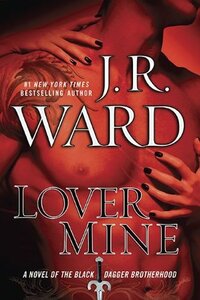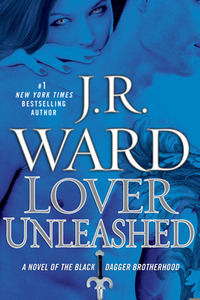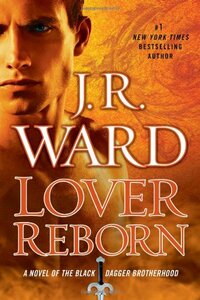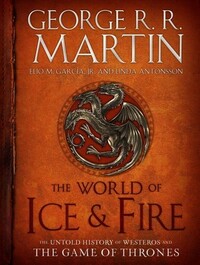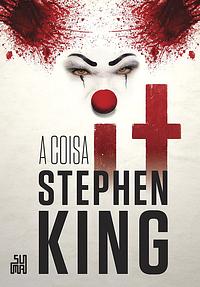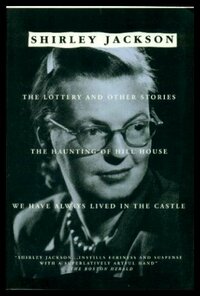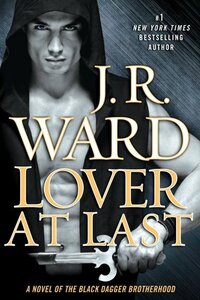Take a photo of a barcode or cover
authorrubyduvall's Reviews (154)
Throughout this book, little things about the pacing and characterization didn't sit well with me, but the book was otherwise fairly entertaining and was approaching five stars, if not then definitely a solid four-star rating.
Then near the end when the group of kids has confronted It in Its lair (only to have to do so again as middle-aged adults), the "magic" or "mojo" of their group is mysteriously failing them and not allowing the "human compass" among them (Eddie) to successfully navigate them back out of the tunnels beneath Derry.
Inexplicably, the author has the sole female in their group have sex with the other six boys to restore their group's solidarity. She's twelve years old.
This combined with my criticisms outlined below knocked the book down to two stars. I almost gave it three, but having written out this entire review, I can't say I liked this book.
Firstly, several things don't jive with that scene. The waning group mojo is unnecessary--they gained solidarity when their seventh member became a part of the Losers and they made a blood pact to return if It wasn't dead. Turns out It was merely wounded in 1958, so the "magic" of Derry and thus the positive power of their group isn't in danger of fading--it only does so when all but one of their group leaves Derry following the events of 1958 and when the magic of Derry dies along with It in 1985. To have Beverly have intercourse with six other boys to somehow restore their group's bond is contrived solely so that Beverly has to endure sex six times.
Secondly, if restoring group mojo were really necessary and--in the author's mind--had to be sex, then I vote that all seven of them would've had to participate in a group orgy, not just the boys having sex with Beverly. If King's going to write under-aged children having sex, might as well make it homosexual as well as heterosexual. Eddie obviously has hero worship for Bill, after all. I can see the theme of growing up/puberty/discovering one's sexuality as being part of the book's goal of exploring childhood, but that theme is brought out of nowhere. The group's friendship is what's emphasized (and heavily) throughout the book. Though King mentions Ben loving Beverly (in that way), the other boys don't see her that way, and only Bill does near the very end. How does Bill and Ben's relationship to each other strengthen with the both of them doing Beverly? It doesn't. If King really wanted to flesh out such a theme, he could have walked us through the climax (no pun intended) of the love triangle between Ben, Bill, and Beverly.
Thirdly, they're all twelve. Nothing in this book gave me nightmares or even a brief chill, but that scene horrified me. They're in some ancient mine shaft, having crawled through active sewers earlier and are covered with sewage (literally, they have SHIT on them), dirt, and drying blood. It's pitch-black down there and they just confronted the ultimate nightmare fuel. It's the farthest from anything positive as you can get. During the sex, poor Bev is imagining flocks of birds landing on/weighing down trees and power lines, and then "lifting off." While King may have meant it as some metaphor or as some way to gloss over what was happening, it read to me as her disassociating with what was happening because SHE'S TWELVE.
Regarding the book overall, while I appreciate the concepts King explored (prejudice and racism in particular, as well as sexism--though when in context of the above scene, I feel as though King majorly failed), one of the six boys in the Losers--Richie "Trashmouth" Tozier--is one of the most racist characters in the book. I just couldn't like him, and when you're writing protagonists, that's a failure. Richie's many "voices" are caricatures of various stereotypes--his way of letting out emotion and energy--and include a black slave character named Pickaninny. He constantly "jokes" about Mike's race (Mike is black) and Stan's ethnicity (Stan is Jewish). While I understand that children are cruel, the whole point of the Losers is for bullied/neglected/abused kids who "survived" It to band together in true friendship. Richie is a terrible friend and a terrible character.
Coming back to sexism, though King confronts it when Beverly insists on participating in their vision quest, none of the boys display any hint of enlightenment regarding their prejudice. Then, both times they confront It, Beverly is given absolutely no part to play. She stands there screaming and being useless. Even Stan with his delicate sensibilities manages to display the minimum of bravado. Another failure on King's part.
Also, King really needs to trim his stories. Near the end, my stamina had worn out and I was skipping whole chapters that went into unnecessary detail about the damage Derry was taking during the storm coinciding with the Losers' second and final confrontation with It. While certain stories regarding Derry's history that highlight its malignancy were nice fluff, that's all they were--fluff. None of these side-trips contributed to the story.
Lastly, a couple of antagonists were poorly utilized. King spent so much time building up how terrible Tom was (Beverly's abusive husband), only to have him kidnap Audra (Bill's wife) in one of King's few succinct chapters and then die "off-page". King spent so much time building up how crazy and murderous Henry Bowers was, but after going loony in 1958 and then getting tapped for more mayhem by It in 1985, he attacks Mike (not killing him, though nearly) and then Eddie, who kills him with a broken bottle. What was the point of Henry showing up in Derry in 1985? He reduced their group from six to five (Mike was hospitalized), but that didn't seem to have any point in the plot. His appearance didn't help the kids in any way. The suspense of not knowing if Henry would successfully carry out It's terrible goal was not fully realized and I was left going, "Huh."
I've read other reviews from people on Goodreads that go after other failings in this book but those are my major gripes. I've read some of King's other stuff ("Cell" and "The Sun Dog"), and while he's a talented writer in that his sense of word choice is entertaining and he has a knack for making readers anticipate details when a dramatic twist is foreshadowed, I don't see myself reading any more of his stuff.
Then near the end when the group of kids has confronted It in Its lair (only to have to do so again as middle-aged adults), the "magic" or "mojo" of their group is mysteriously failing them and not allowing the "human compass" among them (Eddie) to successfully navigate them back out of the tunnels beneath Derry.
Inexplicably, the author has the sole female in their group have sex with the other six boys to restore their group's solidarity. She's twelve years old.
This combined with my criticisms outlined below knocked the book down to two stars. I almost gave it three, but having written out this entire review, I can't say I liked this book.
Firstly, several things don't jive with that scene. The waning group mojo is unnecessary--they gained solidarity when their seventh member became a part of the Losers and they made a blood pact to return if It wasn't dead. Turns out It was merely wounded in 1958, so the "magic" of Derry and thus the positive power of their group isn't in danger of fading--it only does so when all but one of their group leaves Derry following the events of 1958 and when the magic of Derry dies along with It in 1985. To have Beverly have intercourse with six other boys to somehow restore their group's bond is contrived solely so that Beverly has to endure sex six times.
Secondly, if restoring group mojo were really necessary and--in the author's mind--had to be sex, then I vote that all seven of them would've had to participate in a group orgy, not just the boys having sex with Beverly. If King's going to write under-aged children having sex, might as well make it homosexual as well as heterosexual. Eddie obviously has hero worship for Bill, after all. I can see the theme of growing up/puberty/discovering one's sexuality as being part of the book's goal of exploring childhood, but that theme is brought out of nowhere. The group's friendship is what's emphasized (and heavily) throughout the book. Though King mentions Ben loving Beverly (in that way), the other boys don't see her that way, and only Bill does near the very end. How does Bill and Ben's relationship to each other strengthen with the both of them doing Beverly? It doesn't. If King really wanted to flesh out such a theme, he could have walked us through the climax (no pun intended) of the love triangle between Ben, Bill, and Beverly.
Thirdly, they're all twelve. Nothing in this book gave me nightmares or even a brief chill, but that scene horrified me. They're in some ancient mine shaft, having crawled through active sewers earlier and are covered with sewage (literally, they have SHIT on them), dirt, and drying blood. It's pitch-black down there and they just confronted the ultimate nightmare fuel. It's the farthest from anything positive as you can get. During the sex, poor Bev is imagining flocks of birds landing on/weighing down trees and power lines, and then "lifting off." While King may have meant it as some metaphor or as some way to gloss over what was happening, it read to me as her disassociating with what was happening because SHE'S TWELVE.
Regarding the book overall, while I appreciate the concepts King explored (prejudice and racism in particular, as well as sexism--though when in context of the above scene, I feel as though King majorly failed), one of the six boys in the Losers--Richie "Trashmouth" Tozier--is one of the most racist characters in the book. I just couldn't like him, and when you're writing protagonists, that's a failure. Richie's many "voices" are caricatures of various stereotypes--his way of letting out emotion and energy--and include a black slave character named Pickaninny. He constantly "jokes" about Mike's race (Mike is black) and Stan's ethnicity (Stan is Jewish). While I understand that children are cruel, the whole point of the Losers is for bullied/neglected/abused kids who "survived" It to band together in true friendship. Richie is a terrible friend and a terrible character.
Coming back to sexism, though King confronts it when Beverly insists on participating in their vision quest, none of the boys display any hint of enlightenment regarding their prejudice. Then, both times they confront It, Beverly is given absolutely no part to play. She stands there screaming and being useless. Even Stan with his delicate sensibilities manages to display the minimum of bravado. Another failure on King's part.
Also, King really needs to trim his stories. Near the end, my stamina had worn out and I was skipping whole chapters that went into unnecessary detail about the damage Derry was taking during the storm coinciding with the Losers' second and final confrontation with It. While certain stories regarding Derry's history that highlight its malignancy were nice fluff, that's all they were--fluff. None of these side-trips contributed to the story.
Lastly, a couple of antagonists were poorly utilized. King spent so much time building up how terrible Tom was (Beverly's abusive husband), only to have him kidnap Audra (Bill's wife) in one of King's few succinct chapters and then die "off-page". King spent so much time building up how crazy and murderous Henry Bowers was, but after going loony in 1958 and then getting tapped for more mayhem by It in 1985, he attacks Mike (not killing him, though nearly) and then Eddie, who kills him with a broken bottle. What was the point of Henry showing up in Derry in 1985? He reduced their group from six to five (Mike was hospitalized), but that didn't seem to have any point in the plot. His appearance didn't help the kids in any way. The suspense of not knowing if Henry would successfully carry out It's terrible goal was not fully realized and I was left going, "Huh."
I've read other reviews from people on Goodreads that go after other failings in this book but those are my major gripes. I've read some of King's other stuff ("Cell" and "The Sun Dog"), and while he's a talented writer in that his sense of word choice is entertaining and he has a knack for making readers anticipate details when a dramatic twist is foreshadowed, I don't see myself reading any more of his stuff.
I do recommend reading "The Haunting of Hill House", but I suggest reading the introduction by Miller after you've finished the story. Miller's introduction discusses Jackson's life, her stories (especially those related thematically to "The Haunting of Hill House"), and then deconstructs the major themes of the novel. She also does a great job of concisely outlining the narrator's unreliability, of teasing out Eleanor's desires and flaws, and of tying it to Eleanor's origin.
I don't often pick up more literary novels and willingly admit that I'm intimidated by them in many ways, but I'm quite pleased by how much I liked "The Haunting of Hill House". I'm even more pleased by Miller's introduction, which served to complete my understanding of the novel.
My only confusion, still, is to the odd interactions between the characters. The dialogue wasn't natural, but Jackson could have done this on purpose, especially when the reader understands that Eleanor is an unreliable narrator. At times I understood that Dr. Montague, Luke, Theo, and Eleanor were joking, such as their early conversation in which they introduced themselves as a courtesan, a bullfighter, etc but some dialogue was just strange. Luke and Theo talking to each other and to Eleanor, in front of our narrator, but Eleanor never replying; all four discussing fear but all seeming to only think out loud to themselves rather than responding to each other--and if something sounded like a response, it seemed the speaker skipped ahead several cars in their train of thought.
It was interesting but I felt like something was going over my head. Despite this, I'm giving the novel five stars. It's a fast read, so try it out!
I don't often pick up more literary novels and willingly admit that I'm intimidated by them in many ways, but I'm quite pleased by how much I liked "The Haunting of Hill House". I'm even more pleased by Miller's introduction, which served to complete my understanding of the novel.
My only confusion, still, is to the odd interactions between the characters. The dialogue wasn't natural, but Jackson could have done this on purpose, especially when the reader understands that Eleanor is an unreliable narrator. At times I understood that Dr. Montague, Luke, Theo, and Eleanor were joking, such as their early conversation in which they introduced themselves as a courtesan, a bullfighter, etc but some dialogue was just strange. Luke and Theo talking to each other and to Eleanor, in front of our narrator, but Eleanor never replying; all four discussing fear but all seeming to only think out loud to themselves rather than responding to each other--and if something sounded like a response, it seemed the speaker skipped ahead several cars in their train of thought.
It was interesting but I felt like something was going over my head. Despite this, I'm giving the novel five stars. It's a fast read, so try it out!
Yes Means Yes!: Visions of Female Sexual Power and A World Without Rape
Jessica Valenti, Jaclyn Friedman
Many essays, some of which were not as tightly written as I prefer, but all of which were well worth a read. I'll simply list the essays I found most enlightening—those that pointed to intersections I hadn't thought of before—along with short excerpts or quick summaries of their topic. Of the book's twenty-seven essays, definitely read the following:
-"Offensive Feminism: The Conservative Gender Norms That Perpetuate Rape Culture, and How Feminists Can Fight Back" by Jill Filipovic
"...Not until the 1980s did most states criminalize marital rape. Prevailing opinion held that when a bride said, 'I do,' she was legally committed to say, 'I will' for the rest of her life."
-"Toward a Performance Model of Sex" by Thomas Macaulay Millar
"We live in a culture where sex is not so much an act as a thing: a substance that can be given, bought, sold, or stolen, that has a value and a supply-and-demand curve. In this 'commodity model,' sex is like a ticket; women have it and men try to get it."
-"Queering Black Female Heterosexuality" by Kimberly Springer
On the "mammy" and "jezebel" caricatures and attempts to move away from these stereotypes as well as from the "updated" versions of them.
-"The Fantasy of Acceptable 'Non-Consent': Why the Female Sexual Submissive Scares Us (and Why She Shouldn't)" by Stacey May Fowles
--> I highlighted so much of this essay that it was hard to pick one quote, so I'll just try to summarize one of the main points: "Mainstream porn" misappropriates "those desires specific to BDSM" and borrows "from BDSM's images without readings its rules", leading viewers "to believe that what women want is to be coerced and, in some cases, forced into acts they don't consent to". In actuality, proper BDSM "play" is thoroughly negotiated beforehand and is likely more vetted with voiced, enthusiastic consent than vanilla sexual encounters.
-"Invasion of Space by a Female" by Coco Fusco
An amazing essay on certain interrogation techniques in the US military and the Abu Ghraib scandal.
-"When Sexual Autonomy Isn't Enough: Sexual Violence Against Immigrant Women in the United States" by Miriam Zoila Perez
This whole essay is great and covers a lot of ground.
-"When Pregnancy Is Outlawed, Only Outlaws Will Be Pregnant" by Tiloma Jayasinghe
Probably the best essay of the bunch; it's on the attempts to legislate/prosecute women suffering from drug addiction who are also pregnant and wish to carry their baby to term.
"When women who are addicted to drugs do seek to carry to term, they are liable to be punished more harshly for giving birth than if they had sought an illegal abortion (were abortion to become illegal again). And yet the anti-choice machine has not stepped up in their defense, despite the fact that these women 'chose life', and despite the fact that being punished for continuing to term while grappling with a drug problem only deters women from seeking healthcare and substance-abuse treatment. In fact, these [prosecution] cases are supported by the anti-abortion groups because the people whom these laws affect are those women who procreation is not valued anyway—those low-income women who are typically of color. Anti-abortion groups are clearly 'pro life' only for certain kinds of life (white and middle to upper class) and are really, in fact, anti-sex."
-"Purely Rape: The Myth of Sexual Purity and How It Reinforces Rape Culture" by Jessica Valenti
"The purity myth—the lie that sexuality defines how 'good' women are, and that women's moral compasses are inextricable from their bodies—is an integral part of rape culture."
-"Offensive Feminism: The Conservative Gender Norms That Perpetuate Rape Culture, and How Feminists Can Fight Back" by Jill Filipovic
"...Not until the 1980s did most states criminalize marital rape. Prevailing opinion held that when a bride said, 'I do,' she was legally committed to say, 'I will' for the rest of her life."
-"Toward a Performance Model of Sex" by Thomas Macaulay Millar
"We live in a culture where sex is not so much an act as a thing: a substance that can be given, bought, sold, or stolen, that has a value and a supply-and-demand curve. In this 'commodity model,' sex is like a ticket; women have it and men try to get it."
-"Queering Black Female Heterosexuality" by Kimberly Springer
On the "mammy" and "jezebel" caricatures and attempts to move away from these stereotypes as well as from the "updated" versions of them.
-"The Fantasy of Acceptable 'Non-Consent': Why the Female Sexual Submissive Scares Us (and Why She Shouldn't)" by Stacey May Fowles
--> I highlighted so much of this essay that it was hard to pick one quote, so I'll just try to summarize one of the main points: "Mainstream porn" misappropriates "those desires specific to BDSM" and borrows "from BDSM's images without readings its rules", leading viewers "to believe that what women want is to be coerced and, in some cases, forced into acts they don't consent to". In actuality, proper BDSM "play" is thoroughly negotiated beforehand and is likely more vetted with voiced, enthusiastic consent than vanilla sexual encounters.
-"Invasion of Space by a Female" by Coco Fusco
An amazing essay on certain interrogation techniques in the US military and the Abu Ghraib scandal.
-"When Sexual Autonomy Isn't Enough: Sexual Violence Against Immigrant Women in the United States" by Miriam Zoila Perez
This whole essay is great and covers a lot of ground.
-"When Pregnancy Is Outlawed, Only Outlaws Will Be Pregnant" by Tiloma Jayasinghe
Probably the best essay of the bunch; it's on the attempts to legislate/prosecute women suffering from drug addiction who are also pregnant and wish to carry their baby to term.
"When women who are addicted to drugs do seek to carry to term, they are liable to be punished more harshly for giving birth than if they had sought an illegal abortion (were abortion to become illegal again). And yet the anti-choice machine has not stepped up in their defense, despite the fact that these women 'chose life', and despite the fact that being punished for continuing to term while grappling with a drug problem only deters women from seeking healthcare and substance-abuse treatment. In fact, these [prosecution] cases are supported by the anti-abortion groups because the people whom these laws affect are those women who procreation is not valued anyway—those low-income women who are typically of color. Anti-abortion groups are clearly 'pro life' only for certain kinds of life (white and middle to upper class) and are really, in fact, anti-sex."
-"Purely Rape: The Myth of Sexual Purity and How It Reinforces Rape Culture" by Jessica Valenti
"The purity myth—the lie that sexuality defines how 'good' women are, and that women's moral compasses are inextricable from their bodies—is an integral part of rape culture."

